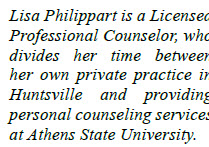The Pathological Liar
 By: Lisa Philippart
By: Lisa Philippart
Telling lies is a common feature of social interactions among humans, and even some animals, like monkeys. The purpose of lies often leads to some benefit. For example, a person may lie to avoid some type of social embarrassment. Some people lie more than others, but this fact alone is not typically a sign of a mental health condition. Pathological lying is different in that it may be a sign of an underlying mental health issue, such as a personality disorder. A pathological liar is someone who lies compulsively and without any clear benefit to themselves. In other words, it is usually possible to determine why someone has lied, but pathological lying occurs for no reason and does not seem to benefit the individual. It is unclear whether the pathological liars are aware of their deceit and/or even capable of thinking rationally about their lies. As you may have experienced, the pathological liar can make socializing difficult and creates interpersonal problems with family and friends. Compulsive lying is a feature of several other conditions, which we will explore here.

Factitious disorder is sometimes called Munchausen’s syndrome. This is a condition in which a person acts as though they are physically or mentally ill when they are not. There is also Munchausen’s syndrome by proxy, which is when someone lies about another person’s illness, most commonly occurring in mothers who feign illness in their child, and then lie to a doctor about it. The causes of this disorder are unclear but may be attributed to childhood abuse or neglect, low self-esteem, a personality disorder, substance abuse, and/or depression. Another condition associated with pathological lying is frontotemporal dementia. Frontotemporal dementia is a form of dementia that affects these two brain regions and causes changes in behaviors and language. The changes in this type of dementia include inappropriate social behaviors, lack of empathy, compulsive behaviors, loss of insight into one’s self, and agitation.

Pathological lying is a possible symptom of certain personality disorders, including borderline personality disorder, narcissistic personality disorder, and antisocial personality disorder. Borderline personality disorder (BPD) is a condition that makes it difficult for people to regulate their emotions. People with BPD may experience severe mood swings, feel increased instability or insecurity, and just not have a solid sense of self. Narcissistic personality disorder (NPD) is characterized by fantasies of immense importance and the need for admiration and special treatment. Antisocial personality disorder (APD) is a mental condition in which a person has a long term pattern of manipulating, exploiting, or violating the rights of others without any remorse. While researchers argue that pathological lying may occur in people with APD, those with this condition lie for personal gain or pleasure. A person with BPD or BPD may lie to distort reality into something that fits with the emotions they are feeling, rather than the facts.

Pathological liars are compulsive and may start small. Their lies can gradually become more elaborate and dramatic, especially if they are necessary to cover up a previous lie. The lies then become more and more complicated by unnecessary amounts of detail. People who lie frequently are not necessarily pathological liars. The most distinguishing feature of a pathological lie is that it does not appear to have a motive. Pathological lying is not a formal diagnosis, but doctors and therapists are trained to recognize the behavior as a sign of another underlying condition, such as a personality disorder. It is possible for pathological lying to be an independent symptom, as some people will pathologically lie without an apparent medical condition. Pathological lies do not lead to any lasting benefit for the person who tells them, and unfortunately they can be harmful to others. It is important to remember that the lying is a compulsion and that those who pathologically lie do not intend to harm others or better themselves.
Knowing a pathological liar can be deeply frustrating because the lying appears to be pointless. So how can you handle a conversation with a pathological liar?
1. Don’t lose your temper. Try to be supportive but firm in your statements.
2. Expect denial. If you confront them about their lying, chances are they will deny it.
3. Remember that it’s not about you. I know it’s hard not to take being lied to personally.
4. Be supportive. When talking to them about their lies, remind them that they don’t need to try to impress you.
5. Don’t engage them. You can question what they are saying, which may encourage them to stop.
If the characteristics of the pathological liar sound like you or someone you know, there is help out there through your doctor or therapist.
By: Lisa Phililippart
Licensed Professional Counselor